Now that everyone has had some time to process the hiring of former Utah head coach Kyle Whittingham, it is time to turn our attention to business.
NIL
Mack Sutter to make decision June 26
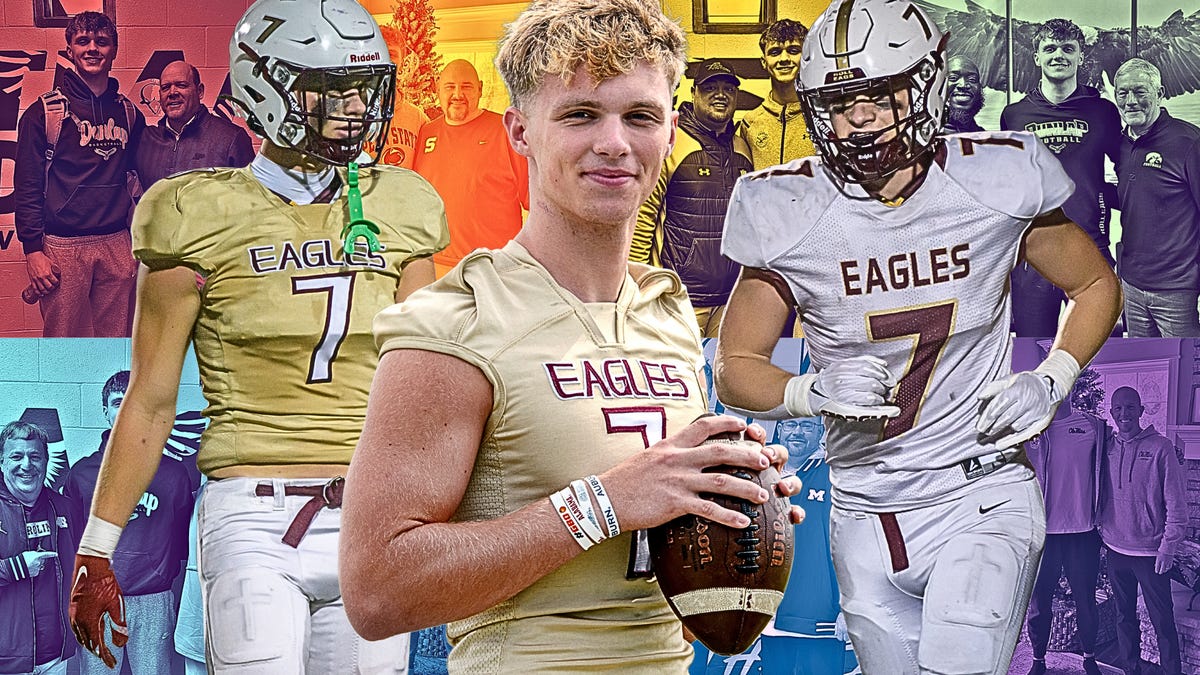
Mack Sutter has set a date for his college commitment.
The 6-foot-6, 225-pound Class of 2026 recruit from Dunlap will be holding a commitment ceremony on June 26. He’ll choose between his final four schools — Alabama, Illinois, Ole Miss or Ohio State.
He’s completed four of his five official visits that started in April and wrap next weekend. His visits included Illinois (April 11), Ole Miss (April 25), Ohio State (May 30), Penn State (June 6) and Alabama (June 20).
Sutter, a four-star tight end, is ranked as the No. 80 prospect nationally, sixth-ranked tight end and the No. 1 prospect in Illinois by 247Sports Composite.
The linebacker/receiver is a two-time selection to the all-Mid-Illini first team and Journal Star all-area team, picked for both in his sophomore and junior seasons.
Mack Sutter stats
As a junior, Sutter had 35 receptions for 505 yards and seven touchdowns for the Eagles, who finished 6-4 and made the Class 6A playoffs. Sutter filled in one game at quarterback, throwing for 119 yards. The four-star prospect also played linebacker with 29 tackles, six sacks, four forced fumbles and a pick-6.
As a sophomore, the quarterback/linebacker/wide receiver recorded 20 tackles and five tackles for loss as a linebacker. Sutter added 710 passing yards and eight touchdowns for the Eagles, who went 6-4 and lost in the first round of the Class 6A playoffs.
NIL
The Clemson Insider
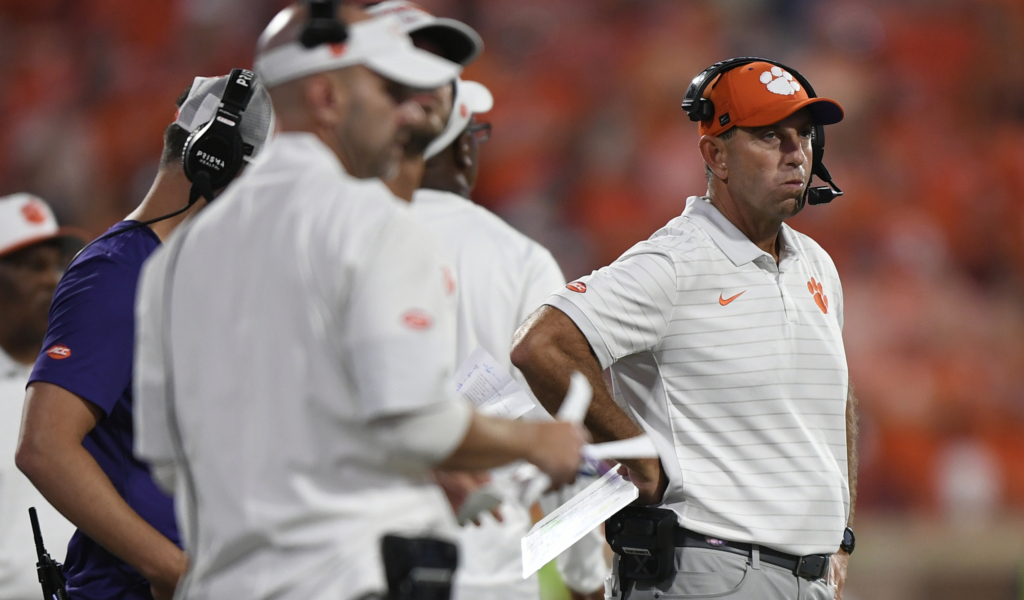
CLEMSON — From time to time, we have heard Dabo Swinney say, “the proof is in the pudding.”
During Clemson’s run from 2015-’20 in the College Football Playoff, there was plenty of proof of Clemson having an elite football program. The argument was strong — 79 wins, 6 ACC Championships, 6 College Football Playoff appearances, 4 National Championship Game appearances and 2 National Championships.
However, the same argument can now be made that the Clemson Football program is no longer an elite program. And like Swinney says, “the proof is in the pudding.”
Since 2021, the Clemson Football Program has 47 wins, 2 ACC Championships and 1 CFP appearance and that is it.
Now, it is probably not fair to expect the Tigers to play for a national championship in each of the last five years like it did from 2015-’19. However, it is fair to expect the program to compete for one, and right now that is not really happening. And Dabo Swinney knows it.
You could see the look of despair on his face following Saturday’s embarrassing performance to Penn State in the Pinstripe Bowl. A game in which the Tigers did not look like a competent football team.
There was miscommunication. There was questionable play calling on both sides of the ball. There was a lack of execution. There were a lot of things that went wrong.
It was a disaster.
And yes, Clemson was playing without a lot of players, but so was Penn State, and the Nittany Lions were coached by an interim head coach, plus a staff full of coaches who were leaving for other programs after the game. And Penn State looked way more competent as a football team and program.
Do you want to know why Penn State dominated the Tigers in the second half of Saturday’s game at Yankee Stadium in New York, N.Y.? It had better depth than Clemson.
Why is that true?
Because Penn State, despite their struggles this season, has invested more in trying to build its roster through the transfer portal and NIL, way more than Clemson has at least.
And, as Swinney says, “the proof is in the pudding.”
When comparing the Clemson program in the pre-NIL-and-transfer-portal era to the current era, there is no comparison. The Tigers won 91.5 percent of their games in the previous five-year stretch. In the last five years since the transfer-portal and NIL took over college athletics, Clemson has won 70.1 percent of its games.
However, in the previous five-year stretch, when playing the top programs in college football, the Tigers were 14-4 (.778). In the last five seasons, they are 1-8 (.125), and that is the most telling part of all of this.
I can keep going. Clemson was 38-3 (.927) in ACC play from 2016-’20, and in the last five seasons, 29-11 (.723) which includes two 4-4 campaigns and two consecutive losses to Duke. If Duke had lost to Clemson in men’s basketball in consecutive games, I can promise you Jon Scheyer would be on the hot seat in Durham.
Guess what? After Saturday’s disappointing loss, which wrapped up an extremely disappointing season, the seat that Dabo Swinney has sat on for so long at Clemson is hot. If he does not get things turned around soon, it’s going to be too hot for him to sit on.
NIL
$5.3 million QB explains career decision to return to college football

The highest-valued player in college sports officially announced his plans to delay a professional career and return to school for the 2026 season. This decision secures the most vital position on the field for the Texas Longhorns as they prepare for the Citrus Bowl and look toward a future conference title run.
Holding a massive $5.3 million valuation and the top spot in the On3 NIL 100, the redshirt sophomore faced intense speculation regarding the NFL Draft. Many analysts projected him as a potential early selection despite a season that began with mixed results. However, the signal-caller opted to prioritize further development at the collegiate level over immediate professional opportunities.
His return ensures continuity for an offense that found its rhythm late in the year. By bypassing the draft, the program retains a leader who guided the team to nine wins and a victory over a bitter in-state rival to close the regular season. The choice reflects a desire to complete unfinished business before making the leap to the next level.
Texas Longhorns QB discusses development and future in Austin
Arch Manning addressed the media ahead of the postseason matchup against the Michigan Wolverines, clarifying why he chose to stay in Austin. The decision comes after a season where he completed 61.4 percent of his passes for 2,942 yards. Manning emphasized that his growth on the field was the primary factor in postponing his NFL entry.
“I felt like I developed a lot this year, especially towards the back half, and I want to keep it going… There’s no reason to leave,” Manning said. “I feel like I got a lot more football left to play, and I’m excited to still be a part of this team.”

The quarterback’s performance improved significantly following early setbacks against the Ohio State Buckeyes and Florida Gators. He finished the regular season with 24 passing touchdowns and added eight scores on the ground. His dual-threat ability was on display during the regular-season finale, where he accounted for two touchdowns to help defeat the then-undefeated Texas A&M Aggies.

Texas Longhorns head coach Steve Sarkisian supported the move. He noted the mental and physical maturity Manning demonstrated during his first full year as the starter. The return of the team captain fortifies a roster that will face a nine-game SEC schedule in 2026, including a highly anticipated rematch with Ohio State in September.
Manning and his teammates are currently focused on their upcoming opponent in Orlando. A victory would secure a 10-win season and generate significant momentum heading into the offseason. The Longhorns will face the Michigan Wolverines in the Citrus Bowl in Orlando, Florida, on Dec. 31 at 3 p.m. ET on ABC.
Read more on College Football HQ
NIL
How Kyle Whittingham has previously attacked the transfer portal

Whittingham agreed to a five-year contract on Friday and was put on a plane straight to Orlando to start building relationships with the players. He’s got to act fast, as the transfer portal opens on Jan. 2 and players will have some quick decisions to make.
What makes Whittingham a fascinating hire is his ability to do more with less. Coming into the 2025 season, Utah was expected to be working with an NIL operating budget of $8 million. For comparison, according to On3’s Pete Nakos, the Wolverines were expected to cross the $20 million threshold.
Obviously, a lot of that money is allocated to high school recruits, but with the wild west that is the transfer portal, Whittingham could be looking to fill his roster via the portal to compliment the young roster Michigan put on the field last season.
In 2025, Utah was ranked 37th in national transfer portal rankings, according to 247Sports, bringing in 22 new players. He also lost 31 players. For reference, Michigan was ranked 30th with 17 incoming transfers.
The highlights of the portal for the Utes’ was former New Mexico quarterback Devon Dampier and Washington State running back Wayshawn Parker, who both helped Utah’s offense drastically. Dampier followed offensive coordinator Jason Beck to Salt Lake City and was the Big 12 Newcomer of the Year after throwing for 2,768 yards and 12 touchdowns.
Meanwhile, Parker was ranked the No. 2 running back in the portal after a terrific 2024 season at Washington State where he rushed for 735 yards (5.4 yards per carry) and four touchdowns. With the Utes this year, Parker ran for 931 yards and six touchdowns.
On defense, Utah received solid play from UC Davis transfer cornerback Blake Cotton. In seven starts, he totaled 25 tackles (two for loss) and seven pass breakups.
However, outside of those three, there was not much other production. The year before showed a similar trend, as Whittingham brought in 12 transfers via the portal while losing 25. Utah was ranked 32nd in the country in transfer portal rankings, with the biggest get being wide receiver Dorian Singer. The former 1,000-yard receiver started all 12 games in 2024, leading Utah with 53 catches and 702 yards to go along with one touchdown.
Most interestingly, of the 22 commits in 2025, six were wide receivers, four were running backs and four were cornerbacks. Of the 12 2024 commits, three were wide receivers, three were edge rushers and three played in the secondary. With a majority of the transfers coming at the same few positions, it appears Whittingham uses the portal to fill holes and build depth more so than just getting the best guys available.
It will be interesting to see how Whittingham plans to utilize the portal in his first season at Michigan, especially with the expectation the Wolverines will lose some of their roster once the coaching staff appears to form. At the very minimum, he will need to replace some of Michigan’s receiving corps, tight end room and secondary with players leaving and those being weak spots on the team this past season.
But with a larger NIL budget and resources, the Michigan brand and the desire to make a splash right away, Whittingham could go away from his typical playbook and hit the portal hard.
NIL
Bowl game star leaving team to enter college football transfer portal
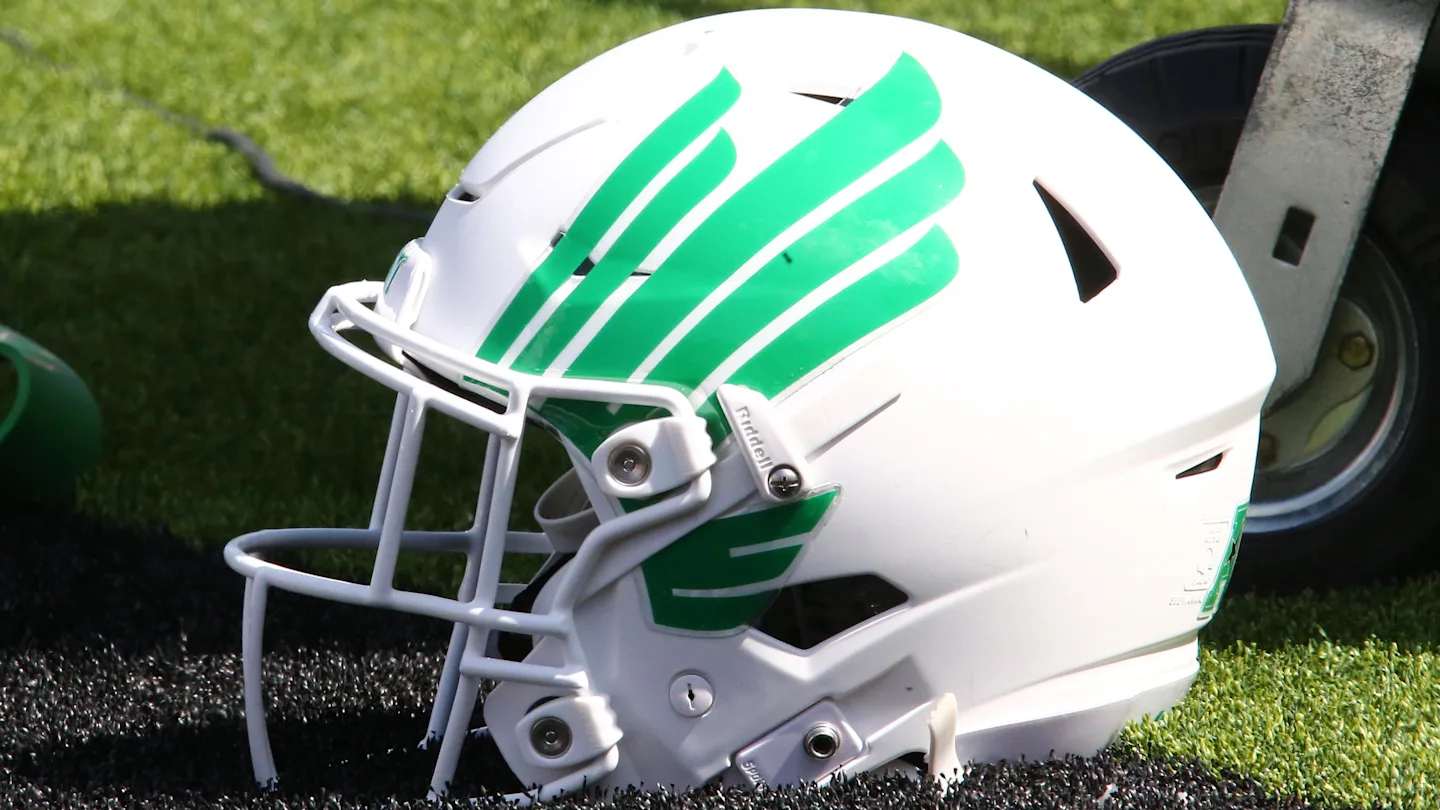
College football bowl season isn’t what it was a decade ago. In the modern age of the sport, most of the significance and attention sits on the 12-team College Football Playoff.
That hasn’t stopped the postseason from delivering plenty of exciting moments and some very competitive games. Look no further than Saturday’s slate. Five of the eight matchups came down to a single possession.
One of the comebacks of the year fell just short in the Isleta New Mexico Bowl. North Texas prevailed over San Diego State, 49-47, but not without plenty of drama. Trailing 49-20 entering the fourth quarter, the Aztecs went on a 27-7 run, including a punt return for a touchdown.
San Diego State’s final score came with just one second remaining, allowing North Texas to run out the clock on the ensuing onside kick. The result moved the Mean Green to 12-2, the best record in program history, and more wins than in their last two years combined.
Coming out of the game, North Texas is having a hard time celebrating after taking a few transfer portal hits. The school previously lost its head coach, Eric Morris, to Oklahoma State.
Breakout Running Back Moving On To Transfer Portal
On Saturday evening, redshirt freshman running back Ashton Gray announced his decision to transfer after two seasons at North Texas, per On3’s Hayes Fawcett.
Gray came out of nowhere to play a big role in the New Mexico Bowl. He saw increased playing time with Makenzie McGill and Kiefer Sibley unavailable. Gray finished the game with a career-high 16 carries for 152 yards and 2 touchdowns, while adding one reception for nine yards.
The Arkansas native scored twice in the first half, including a 51-yard scamper early in the second quarter that put North Texas up 28-13. His first touchdown gave the Mean Green a 14-7 advantage that they would never relinquish despite San Diego State’s late rally.
Gray entered the game with 42 carries for 225 yards and 3 touchdowns on the season. That just goes to show how impressive his final outing of the fall truly was.
Including the bowl game, Gray totaled 40 carries for 283 yards and 4 touchdowns in his last four appearances.
Gray signed with North Texas as a three-star prospect in the 2024 class. He redshirted during his first season with the program. Gray was recruited by former head coach Eric Morris and could potentially fit in at Oklahoma State.
The 6-foot-0, 208-pound running back will have three seasons of eligibility remaining.
Gray was the Little Rock Touchdown Club State Player of the Year and an all-state selection during his senior season at Marion High School in 2023.
North Texas has multiple starters expected to enter the portal, including quarterback Drew Mestemaker and running back Caleb Hawkins.
Read more on College Football HQ
• College Football Playoff team loses key starter to NCAA transfer portal
• College Football Playoff team loses former starter to transfer portal
• College Football Playoff team has taken 3 major hits in trenches via transfer portal
• College football team set to be without nearly 20 players for upcoming bowl game
NIL
Major college football program surges as candidate for 4,000-yard QB

Tennessee finished the 2025 season 8–4 (4–4 SEC) under fifth-year head coach Josh Heupel, a sharp drop-off from its 10–3 finish and College Football Playoff appearance in 2024.
Starting quarterback Joey Aguilar threw for 3,444 yards with 24 touchdowns and 10 interceptions, while backup Jake Merklinger has publicly indicated he plans to enter the transfer portal when it opens.
With Aguilar’s future at Tennessee up in the air, Merklinger’s departure would remove an experienced depth option and leave the Volunteers primed to add a quarterback from the transfer portal for 2026.
On3’s Pete Nakos reported Saturday that UNLV quarterback Anthony Colandrea is expected to enter the NCAA transfer portal, with Tennessee already emerging as one of the programs being linked to him.

Colandrea enjoyed a breakout 2025 at UNLV, being named the Mountain West Offensive Player of the Year after throwing for 3,459 yards with 23 passing TDs and nine interceptions, adding 649 rushing yards and 10 rushing TDs.
He started for UNLV during its run to the Mountain West title game and a postseason bowl appearance, finishing 19 of 30 for 184 yards and one interception with 28 rushing yards and a rushing touchdown in the Rebels’ 17–10 Scooter’s Coffee Frisco Bowl loss to Ohio.
A Lakewood (St. Petersburg, Fla.) product and consensus three-star recruit, Colandrea began his career at Virginia before transferring to UNLV ahead of the 2025 campaign.
Ranked as 247Sports’ No. 72 quarterback in the 2023 class, he drew nearly two dozen offers, including Kentucky, Florida Atlantic, Hawaii, South Florida, Troy, and Georgia State.
Throughout his collegiate career, Colandrea has amassed 7,542 passing yards and 1,151 rushing yards, totaling 61 touchdowns and a career completion rate of 63.8%.
As a dual-threat, experienced starter with a proven track record of high-volume production, he fits Tennessee’s pass-heavy offense and addresses a clear need for depth and competition at quarterback amid roster turnover.
Read More at College Football HQ
- $2.4 million QB emerges as transfer portal candidate for SEC program
- Major college football program ‘expected to hire’ 66-year-old head coach
- College Football Playoff team loses player to transfer portal
- College Football Playoff team loses starting QB to transfer portal
NIL
Athletic Director Confident Wyoming is ‘Catching Up’ in NIL Game
LARAMIE — When it comes to the controversial subject of Name, Image and Likeness in college sports, Tom Burman will be the first to tell you Wyoming has been playing catch up.
That doesn’t mean a solution isn’t on the horizon.
“We need to grow it quickly,” the school’s longtime athletics director admitted on Saturday night.

A report by the Cowboy State Daily earlier in the day stated the department is only allocating $1.4 million annually in NIL funds, $800,000 less per year than regional programs Montana and Montana State, which compete in the FCS.
While the latter dollar amount could not be substantiated, Burman said the initial figure for UW is now at $1.5 million, adding that number only illustrates the revenue sharing monies between the school’s two largest income generating programs, football and men’s basketball. An additional $200,000 is being divvied up between women’s basketball, volleyball and wrestling, he added.
“This does not include any third-party NIL dollars or Learfield NIL partnerships, which are likely another $500,000 total,” he continued. “This also does not include Alston Scholarship dollars, which is $1.1 million, and are included as revenue sharing as part of the House Settlement analysis.”
There are other future plans in place to bring in additional revenue, Burman said. including jersey patches, field and court logos and venue naming opportunities.
UNLV, one of the Cowboys’ current Mountain West foes, recently announced a 5-year, $11 million deal to promote a local Las Vegas company on its uniforms in football, men’s and women’s basketball and baseball. That is expected to be approved in August.
Burman said this will happen at UW, but added, “We’re not going to give it away.”
The same can be said for a permanent field sponsor inside War Memorial Stadium.
Ramos Law, a firm based out of Colorado, purchased that space for the Cowboys’ home finale last month against Nevada — the “Josh Allen game” — for a reported $90,000-plus. The company logo was placed at both 25 yards lines.
MORE UW FOOTBALL NEWS VIA 7220SPORTS:
* Burman, UW Athletics Seeking Additional Revenue Streams
* Recruiting, Portal Misses Have Lasting Impact in Laramie
* Injured Wyoming Running Back Says He’s Entering Portal
* Wyoming Inks 20 Freshmen in 2026 Recruiting Class
* Wyoming in the Market for New Offensive Coordinator
* PODCAST: Offseason ‘Rework’ Underway in Laramie
* Running Back Terron Kellman Again Looking for New Home
* Wyoming’s Leading Receiver Entering NCAA Transfer Portal
There are other potential avenues that could help Wyoming gain ground on the competition.
“If we get support from the state — and not a budget cut, also — and continued investment from the private sector, coupled with support from campus, we will be in a good place in short order,” Burman said.
The department earlier this month asked the joint appropriations committee of the Wyoming Legislature for an additional $3 million on top of the annual $11.2 it receives annually through the school’s block grant. The state will also match up to $5 million a year in private donations.
The grand total is just over $19 million.
Though the $3 million, annually, wouldn’t go directly to NIL and revenue sharing, Burman said, it will help UW to handle other escalating costs that have occurred due to inflation and additional costs related to the NCAA House settlement and Mountain West membership changes.
The university is now on the hook for reimbursements to former student-athletes. That number totals $2.8 billion in damages. Over the next 10 years, Burman added, Wyoming will lose funding to the tune of $550,000, annually.
The current media rights deal with the conference, which currently brings in $3.7 million a year, is also likely to take a hit.
San Diego State, Fresno State, Utah State, Boise State and the Cowboys’ Border War rival, Colorado State, are departing in July for the new-look Pac-12. The league is adding UTEP and Northern Illinois, the latter in football only. UC Davis and Grand Canyon have joined on the basketball side. Hawaii is also now a full member.
The department, though, could soon see an influx of cash once the legal battle between the Mountain West and Pac-12 is finalized. Poaching fees and exit fees are at the heart of the litigation. The next hearing in that case is set for Sept. 9.
Donations to the Cowboy Joe Club, the department’s lead fundraising arm, will also open up additional opportunities to retain and lure future student-athletes, Burman added.
“We are starting to see people donate,” he said. “That frees up money for revenue sharing through ticket sales, media rights, corporate dollars, television, etc.
“We are just getting started.”
University of Wyoming’s Top 50 Football Players
The rules are simple: What was the player’s impact while in Laramie? That means NFL stats, draft status or any other accolade earned outside of UW is irrelevant when it comes to this list.
This isn’t a one-man job. This task called for a panel of experts. Joining 7220’s Cody Tucker are Robert Gagliardi, Jared Newland, Ryan Thorburn, and Kevin McKinney.
We all compiled our own list of 50 and let computer averages do the work. Think BCS — only we hope this catalog is fairer.
Gallery Credit: 7220Sports.com
– University of Wyoming’s Top 50 Football Players
-

 Motorsports3 weeks ago
Motorsports3 weeks agoSoundGear Named Entitlement Sponsor of Spears CARS Tour Southwest Opener
-

 Motorsports3 weeks ago
Motorsports3 weeks agoDonny Schatz finds new home for 2026, inks full-time deal with CJB Motorsports – InForum
-
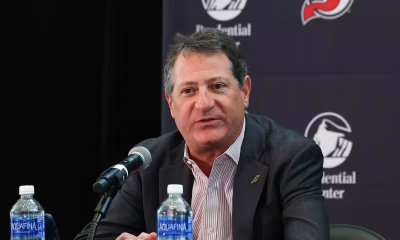
 Rec Sports3 weeks ago
Rec Sports3 weeks agoDavid Blitzer, Harris Blitzer Sports & Entertainment
-

 NIL3 weeks ago
NIL3 weeks agoDeSantis Talks College Football, Calls for Reforms to NIL and Transfer Portal · The Floridian
-
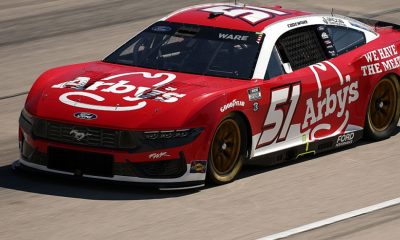
 Motorsports3 weeks ago
Motorsports3 weeks agoRick Ware Racing switching to Chevrolet for 2026
-

 Sports2 weeks ago
Sports2 weeks ago#11 Volleyball Practices, Then Meets Media Prior to #2 Kentucky Match
-

 Motorsports2 weeks ago
Motorsports2 weeks agoSunoco to sponsor No. 8 Ganassi Honda IndyCar in multi-year deal
-
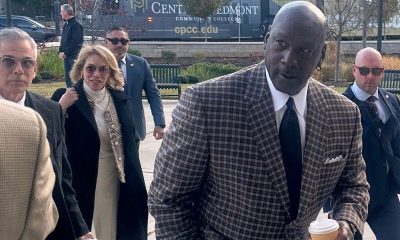
 Motorsports3 weeks ago
Motorsports3 weeks agoNASCAR owes $364.7M to teams in antitrust case
-
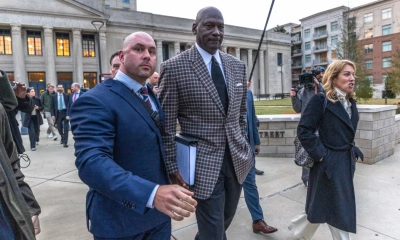
 Motorsports2 weeks ago
Motorsports2 weeks agoNascar legal saga ends as 23XI, Front Row secure settlement
-
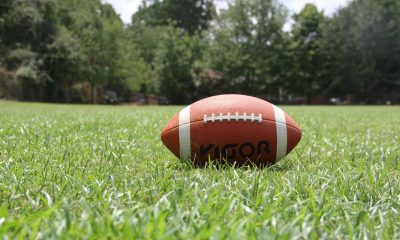
 Rec Sports3 weeks ago
Rec Sports3 weeks agoWhy the Texas Sport for Healing Fund Should Return – The Daily Texan





























